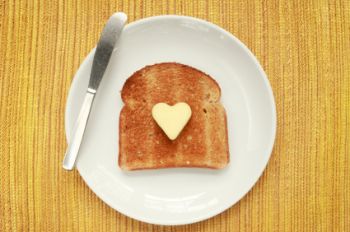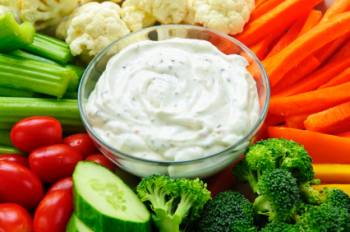Eating well and following a sensible diet doesn’t have to be complicated. Food guru Michael Pollan has simplified the mountain of nutritional geekspeak into some basic principles.
Eating has become complicated.
We rely on experts to tell us how to eat - doctors and diet books, media, government advisories, health claims on food packages. But after years of researching nutrition, I realised the answer to the supposedly complicated question of what we should eat wasn’t complicated at all. In fact, it could be boiled down to just seven words: Eat food. Not too much. Mostly plants.
All the contenders in the nutrition wars agree that the so-called Western diet - with processed foods and meat, added fats and sugar, refined grains and lots of everything except vegetables, fruit and wholegrains - is bad for us. And people who get off this diet in favour of a more traditional way of eating see dramatic improvements in their health.
Here, then, are some of my simple rules for eating well:
Eat food
This is easier said than done, especially when thousands of new products show up on shelves monthly. They’re designed for longevity, which often means removing nutrients that attract insects, or that are likely to turn rancid. The more processed a food is, the longer the shelf life, and the less nutritious it typically is.
Real food is alive - and therefore it should eventually die. (There are a few exceptions to this rule: for example, honey has a shelf life measured in centuries.)
Also note that most of the immortal food-like substances in the supermarket are found in the middle aisles.
Avoid food products that contain more than five ingredients
The specific number you adopt is arbitrary but the more ingredients in a packaged food, the more highly processed it probably is.
Eat mostly plants, especially leaves
Scientists may disagree on what’s so good about plants - the antioxidants? The fibre? The omega-3 fatty acids? - but they do agree that they’re probably really good for you and certainly can’t hurt. Also, by eating a diet that is primarily plant-based, you’ll be consuming far fewer kilojoules since plant foods – with the exception of seeds, including grains and nuts – are usually less “energy dense” than other things you eat.
Eat your colours
The idea that a healthy plate of food will feature several different colours is a good example of an old wives’ tale that turns out be to be good science, too. The colours of many vegetables reflect the different antioxidant phytochemicals they contain – anthocyanins, polyphenols, flavonoids, carotenoids. Many of these chemicals help protect against chronic disease, but each in a slightly different way, so the best protection comes from a diet containing as many different phytochemicals as possible.
Pay more, eat less
If you spend more for better food, you’ll probably eat less of it, and treat it with more care. And if that higher quality food tastes better, you will need less to feel satisfied. Choose quality over quantity. Or, as wise grandmothers used to say, “Better to pay the grocer than the doctor.”
Eat sweet foods as you’d find them in nature
In nature, sugars almost always come packaged with fibre, which slows their absorption and gives you a sense of satiety before you’ve ingested too many kilojoules. That’s why you’re always better off eating the fruit rather than drinking the juice.
"The whiter the bread, the sooner you’ll be dead"
This rather blunt bit of cross-cultural grandmotherly advice (passed down from both Jewish and Italian grandparents) suggests that the health risks of white flour have been popularly recognised for many years. As far as the body is concerned, white flour is not much different from sugar. Unless supplemented, it offers none of the good things (fibre, B vitamins, healthy fats) in wholegrains – it’s little more than a shot of glucose. Large spikes of glucose are inflammatory and wreak havoc on our insulin metabolism. Eat whole grains and minimize your consumption of white flour.
Stop eating before you’re full
The Japanese have a saying - harahachi bu - counselling people to stop eating when they are 80% full. The Ayurvedic tradition in India advises eating until you are 75% full; the Chinese specify 70%; and the prophet Muhammad described a full belly as one that contained one third food, one third liquid, and one third air - in other words, nothing.
Also, the French may have something to teach us. To say “I’m hungry” you say “J’ai faim” - “I have hunger” - and when you are finished you do not say that you are full, but “Je n’ai plus faim” - “I have no more hunger”. That is a completely different way of thinking about satiety. So, ask yourself not, “Am I full?” but, “Is my hunger gone?” That moment will arrive several bites sooner.
Break the rules once in a while
Obsessing over food rules is bad for your happiness, and probably your health, too. Over the past few decades, dieting and worrying too much about nutrition has made us no healthier or slimmer; cultivating a relaxed attitude towards food is important.
There will be special occasions when you will want to throw healthy eating rules out the window. What matters more is the habits that govern your eating on a typical day. “All things in moderation” is often said, but we should never forget the wise addendum, sometimes attributed to Oscar Wilde: “Including moderation”.
From Food Rules: An Eater’s Manual © 2010 By Michael Pollan, published by Penguin Books at R85. Reprinted with permission from Reader’s Digest.
(Health24, April 2011)
Read more:
10 rules for a balanced diet
5-a-day for better health
Do we need fats?




 Publications
Publications
 Partners
Partners
















